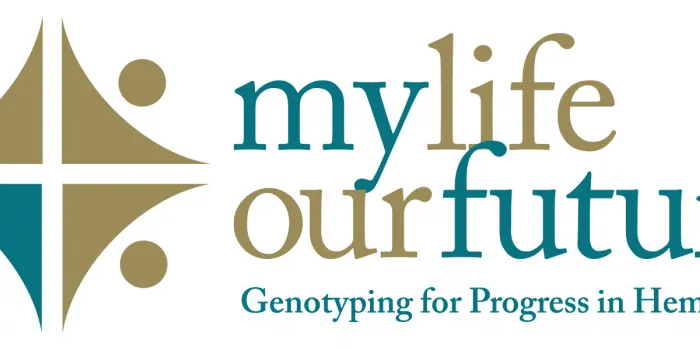My Life, Our Future (MLOF) is a nationwide campaign offering free genetic testing, or genotyping, for people affected by hemophilia. A partnership between the American Thrombosis and Hemostasis Network (ATHN), Bloodworks Northwest, the National Hemophilia Foundation (NHF) and Bioverativ (formerly Biogen), the program has two goals: to help families understand more about the disorder and to help researchers and clinicians better understand connections between the disorder’s genetic cause and clinical outcomes.
In addition to being genotyped, MLOF participants can contribute their genetic data and blood samples to the MLOF Research Repository, which will allow researchers to explore long-unanswered questions about hemophilia, including why one person bleeds differently than another and why some people react differently to the same treatment.
To date, more than 8,000 people with hemophilia A and B, as well as potential and confirmed carriers, have taken part in MLOF.
MLOF eligibility
MLOF is open to all people with hemophilia A and B. The program expanded in 2016 to include confirmed and potential carriers of hemophilia. Carriers and potential carriers may also contribute their genetic data to the MLOF Research Repository.
Eligible carrier participants include:
- Mothers of a child with hemophilia A or B
- Daughters of a father with hemophilia A or B (obligate carriers)
- Daughters of a mother with hemophilia A or B
- Siblings of a brother or sister with hemophilia A or B
- Women who have a second-degree relative (half sibling, aunt, uncle, grandparent) or third-degree relative (cousin, great-grandparent) with hemophilia A or B
The ins and outs of carrier testing
Carrier testing is a relatively simple process that requires having blood drawn at a hemophilia treatment center (HTC), which typically takes less than 30 minutes. Here’s how the MLOF carrier testing works:
- During a visit to her HTC, a woman authorizes genotyping and her blood is drawn.
- The participant’s blood sample is sent to Bloodworks Northwest for genotyping.
- If the participant consents to contribute to the MLOF Research Repository, her de-identified genetic and clinical data are shared with the ATHNdataset, a safe, secure national database, and her blood sample is stored for future study.
- The participant’s results are returned to the HTC.
- HTC staff share and discuss results with the participant.
- If the participant is not found to be a carrier, the chance that she could have a child with hemophilia is very low, close to the risk of a woman who does not have hemophilia in her family.
MLOF aims to enroll 2,000 confirmed carriers in the MLOF Research Repository by the end of 2017, providing scientists with enough data and samples to study.
MLOF genotyping and carrier testing is available at HTCs across the US. View a list of participating HTCs, including those offering carrier testing.

